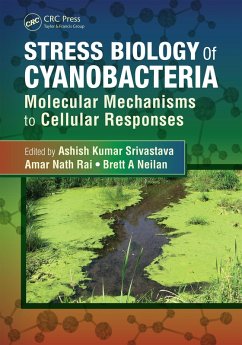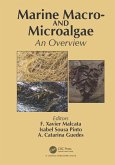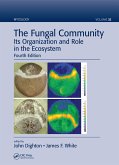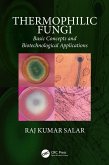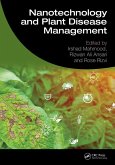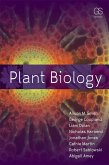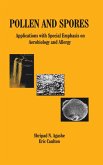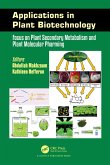Stress Biology of Cyanobacteria (eBook, ePUB)
Molecular Mechanisms to Cellular Responses
Redaktion: Srivastava, Ashish Kumar; Neilan, Brett A; Rai, Amar Nath


Alle Infos zum eBook verschenken

Stress Biology of Cyanobacteria (eBook, ePUB)
Molecular Mechanisms to Cellular Responses
Redaktion: Srivastava, Ashish Kumar; Neilan, Brett A; Rai, Amar Nath
- Format: ePub
- Merkliste
- Auf die Merkliste
- Bewerten Bewerten
- Teilen
- Produkt teilen
- Produkterinnerung
- Produkterinnerung

Hier können Sie sich einloggen

Bitte loggen Sie sich zunächst in Ihr Kundenkonto ein oder registrieren Sie sich bei bücher.de, um das eBook-Abo tolino select nutzen zu können.
This reference is a compilation of holistic responses of cyanobacteria, ranging from ecological and physiological to the modern aspects of their molecular biology, genomics, and biochemistry. Covering almost every facet of cyanobacterial stress biology, this book is divided into two parts: Bioenergetics and Molecular Mechanisms of Stress Tolerance and Cellular Responses and Ecophysiology. The first part covers photosynthesis and respiration as well as the effect of specific stresses on various cyanobacterial processes. The second part describes symbiosis mechanisms, stress-induced bioproducts,…mehr
- Geräte: eReader
- mit Kopierschutz
- eBook Hilfe
- Größe: 12.67MB
![Marine Macro- and Microalgae (eBook, ePUB) Marine Macro- and Microalgae (eBook, ePUB)]() Marine Macro- and Microalgae (eBook, ePUB)49,95 €
Marine Macro- and Microalgae (eBook, ePUB)49,95 €![The Fungal Community (eBook, ePUB) The Fungal Community (eBook, ePUB)]() The Fungal Community (eBook, ePUB)49,95 €
The Fungal Community (eBook, ePUB)49,95 €![Thermophilic Fungi (eBook, ePUB) Thermophilic Fungi (eBook, ePUB)]() Raj Kumar SalarThermophilic Fungi (eBook, ePUB)49,95 €
Raj Kumar SalarThermophilic Fungi (eBook, ePUB)49,95 €![Nanotechnology and Plant Disease Management (eBook, ePUB) Nanotechnology and Plant Disease Management (eBook, ePUB)]() Nanotechnology and Plant Disease Management (eBook, ePUB)54,95 €
Nanotechnology and Plant Disease Management (eBook, ePUB)54,95 €![Plant Biology (eBook, ePUB) Plant Biology (eBook, ePUB)]() Alison M. SmithPlant Biology (eBook, ePUB)83,95 €
Alison M. SmithPlant Biology (eBook, ePUB)83,95 €![Pollen and Spores (eBook, ePUB) Pollen and Spores (eBook, ePUB)]() S N AgashePollen and Spores (eBook, ePUB)189,95 €
S N AgashePollen and Spores (eBook, ePUB)189,95 €![Applications in Plant Biotechnology (eBook, ePUB) Applications in Plant Biotechnology (eBook, ePUB)]() Applications in Plant Biotechnology (eBook, ePUB)62,95 €
Applications in Plant Biotechnology (eBook, ePUB)62,95 €-
-
-
Dieser Download kann aus rechtlichen Gründen nur mit Rechnungsadresse in A, B, BG, CY, CZ, D, DK, EW, E, FIN, F, GR, HR, H, IRL, I, LT, L, LR, M, NL, PL, P, R, S, SLO, SK ausgeliefert werden.
- Produktdetails
- Verlag: Taylor & Francis eBooks
- Erscheinungstermin: 1. März 2013
- Englisch
- ISBN-13: 9781040197431
- Artikelnr.: 72538640
- Verlag: Taylor & Francis eBooks
- Erscheinungstermin: 1. März 2013
- Englisch
- ISBN-13: 9781040197431
- Artikelnr.: 72538640
- Herstellerkennzeichnung Die Herstellerinformationen sind derzeit nicht verfügbar.
Photosynthesis in Cyanobacteria. Water Oxidation and Water-Oxidizing
Complex in Cyanobacteria. Origin, Evolution, and Interaction among
Bioenergetic Processes of Cyanobacteria under Normal and Stressful
Environments. Understanding the Mechanisms of Abiotic Stress Management in
Cyanobacteria with Special Reference to Proteomics. Molecular Chaperones
and Stress Tolerance in Cyanobacteria. Heat Stress Management in
Synechocystis PCC 6803: The Interplay between Membranes and Stress Protein
Molecular Chaperones. Sensing and Molecular Responses to Low Temperature in
Cyanobacteria. Salt Toxicity and Survival Strategies of Cyanobacteria.
Cyanobacterial Salt Stress Acclimation: Genetic Manipulation and
Regulation. Regulatory Mechanisms of Cyanobacteria in Response to Osmotic
Stress. Molecular Mechanisms of UV-B Stress Tolerance in Cyanobacteria.
Zinc Homeostasis in Cyanobacteria. Cellular Responses and Ecophysiology:
Cyanobacteria in Symbiosis: Cellular Responses. A Global Understanding of
Light Stress in Cyanobacteria: Environmental and Bioproducts Perspectives.
Environmental Factors Regulating Nitrogen Fixation in Heterocystous and
Non-Heterocystous Cyanobacteria. Adaptation of Cyanobacteria to
Anthropogenic and Natural Stress: The Role Played by Spontaneous Mutation.
Benthic Microcystin and Climatic Change. Hepatotoxic Microcystins of
Cyanobacteria: Biosynthesis and Degradation in Response to Abiotic Stress.
Structural, Physiological, and Ecological Adaptations in Cyanobacterial
Mats under Stressful Environment.
Photosynthesis in Cyanobacteria. Water Oxidation and Water-Oxidizing
Complex in Cyanobacteria. Origin, Evolution, and Interaction among
Bioenergetic Processes of Cyanobacteria under Normal and Stressful
Environments. Understanding the Mechanisms of Abiotic Stress Management in
Cyanobacteria with Special Reference to Proteomics. Molecular Chaperones
and Stress Tolerance in Cyanobacteria. Heat Stress Management in
Synechocystis PCC 6803: The Interplay between Membranes and Stress Protein
Molecular Chaperones. Sensing and Molecular Responses to Low Temperature in
Cyanobacteria. Salt Toxicity and Survival Strategies of Cyanobacteria.
Cyanobacterial Salt Stress Acclimation: Genetic Manipulation and
Regulation. Regulatory Mechanisms of Cyanobacteria in Response to Osmotic
Stress. Molecular Mechanisms of UV-B Stress Tolerance in Cyanobacteria.
Zinc Homeostasis in Cyanobacteria. Cellular Responses and Ecophysiology:
Cyanobacteria in Symbiosis: Cellular Responses. A Global Understanding of
Light Stress in Cyanobacteria: Environmental and Bioproducts Perspectives.
Environmental Factors Regulating Nitrogen Fixation in Heterocystous and
Non-Heterocystous Cyanobacteria. Adaptation of Cyanobacteria to
Anthropogenic and Natural Stress: The Role Played by Spontaneous Mutation.
Benthic Microcystin and Climatic Change. Hepatotoxic Microcystins of
Cyanobacteria: Biosynthesis and Degradation in Response to Abiotic Stress.
Structural, Physiological, and Ecological Adaptations in Cyanobacterial
Mats under Stressful Environment.
